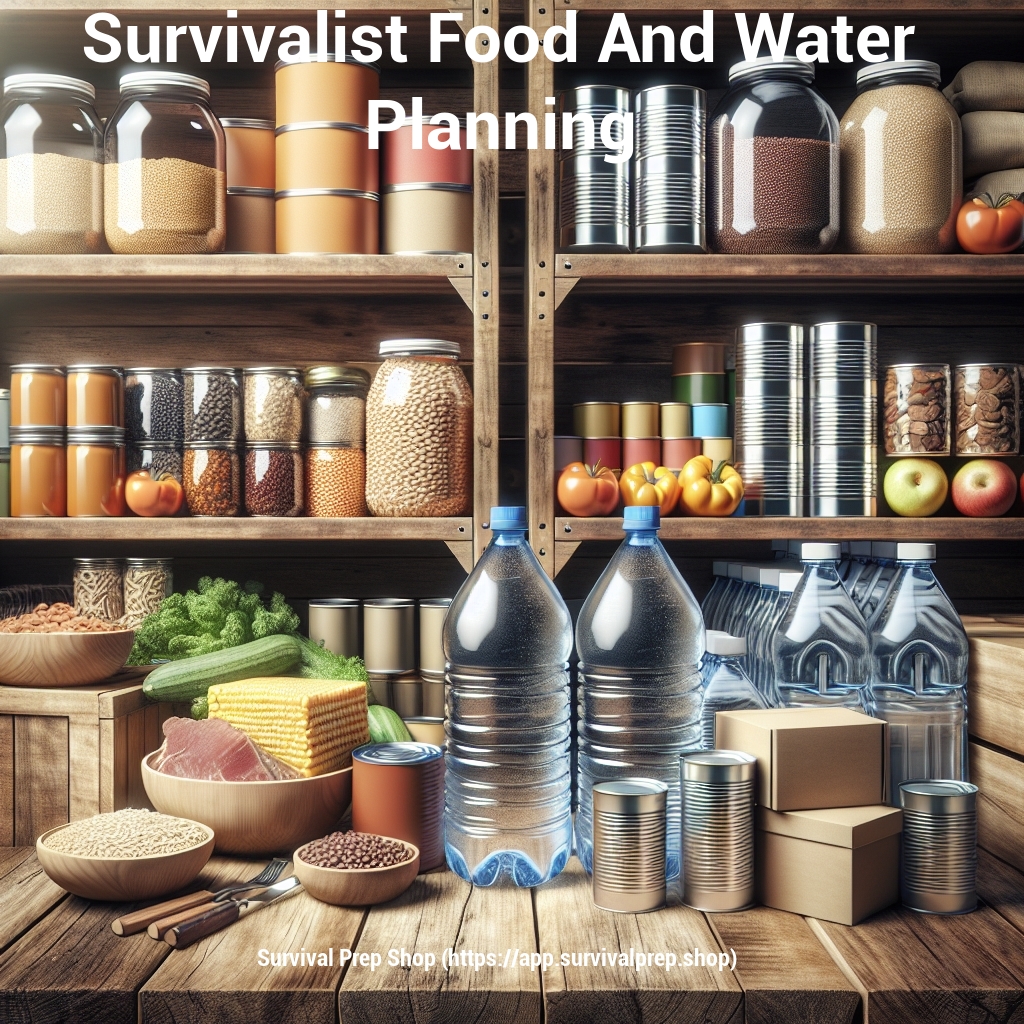
Hello everyone, and welcome to the Survival Prep Shop.
I’m delighted to join you in another invigorating discussion about all things survival. As we explore together, keep in mind that my advice comes from a place of personal practice and reflection.
Preparing Food and Water for Survival
Chapter 1: Importance of prepping in advance
- Not all food will keep well (some foods expire quickly without refrigeration or won’t keep as long as you need them to)
- Food supplies will become limited (grocery stores may be raided or cleared of all food, new shipments may not be able to arrive reliably)
- Need food and water to survive (can only go so long without either, will quickly become fatigued and unable to go search for more, resulting in death)
Chapter 2: Scavenging isn’t a good option
- It may be protected (people are on edge in survival situations and may guard food that they find)
- Some food you find might be contaminated (if the emergency was medical or biological in nature, the food might have been contaminated and will then be unsafe to eat)
- It’s a big “what if” (finding food won’t always be guaranteed, you’ll be taking a much larger risk than you need to be trying to find it)
Chapter 3: Survival food won’t be the best tasting food
- Solely for nutrition (food doesn’t have to taste good to be good for survival)
- High calories (higher calorie foods preferred for more energy)
- Water won’t be the best (some people are picky with water, preferring things like Fiji or Smart Water won’t fly, they’ll have to settle for some funny tasting water that’s at least mostly clean)
Chapter 4: Water must be stored properly
- No flimsy containers (last thing you want is a broken container and spilled, wasted water)
- Tight seals are a must (things will get in your water if not sealed properly, can lead to a lot of contamination issues)
- Various sizes of containers (personal sizes for yourself and family, but also large sized containers to store it all before transferring it over to the personal containers, etc)
Chapter 5: Understand how to ration
- Limited food supplies (have to divide up food adequately, can’t have one person eat a lot of it because that will leave everyone else with no food, leading to no energy)
- Water is precious (water is more needed than food, dehydration comes with many more consequences than starving. Ration water well and be very sure not to spill or waste it)
- Different people have different needs (larger people need more food than smaller people to operate, so account for things like this when dividing up the rations)
Chapter 6: Set aside personal preference
- Don’t worry about your diet (survival isn’t about staying super healthy, it’s about living, period. Foods that you might not eat for religious or health related reasons can’t be turned away if it’ll help you survive)
- Rethink your caloric intake (you’ll need a lot of calories if you’re doing physical activity out in the wilderness all day)
- No more pickiness (you won’t likely get foods that you like, but what’s more important than that is that you can get food at all. It might not all taste good, but it will all help you survive)
Chapter 7: Consider MREs
- Easy to use (food already chosen and prepared for storage, simple instructions on how to eat, no cooking required)
- Generally good tasting (MREs actually taste a lot better than most people would assume, make for great sources of nutrition in survival situations)
- Very long lasting (if stored properly, can last decades on end without spoiling, not always a guarantee though)
Chapter 8: Figure out a heat source
- Why you need heat (required for cooking some foods like meat, but makes most meals nicer to eat)
- Heat source options (flameless heaters, wood fire, fire starter tablets, etc)
- The right heating equipment (some kind of container that won’t melt that can hold the food being heated)
— Don’t forget to check out our YouTube channel — Click here —
